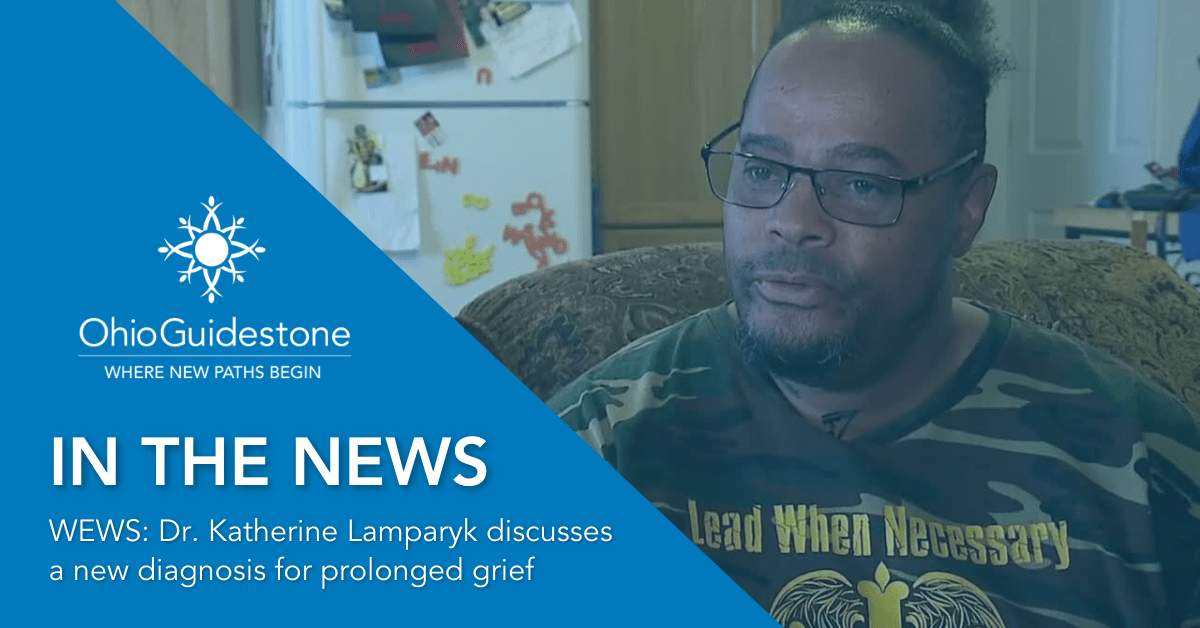Treating the Person, Not the Disorder
“I Was in a Cycle of Self Destruction”
A July 2022 People Magazine, featured the beautiful actor Hayden Panettiere on the cover with a headline about her addiction. But if you keep reading, she talks about difficulties that coincided with her addiction. Panettiere briefly mentioned an abusive relationship then elaborated on the postpartum depression she had after her daughter was born. She told People Magazine “I never had the feeling that I wanted to harm my child, but I didn’t want to spend any time with her….There was just this gray color in my life.”
Sometimes the Diagnosis Isn’t So Simple
Anyone who has experienced depression in any form can identify with the “gray” Panettiere mentioned. (Maybe we should call it the “grays” instead of “the blues.”) She was diagnosed and treated for postpartum depression but found out what many of our OhioGuidestone Counselors will agree, that one diagnosis might only be part of another issue. In addition to the postpartum depression, Panettiere ended up in treatment for alcohol and drug addiction, also learning how to avoid and recover from an abusive relationship. It’s hard to say how the three are directly related, or if one caused the other, but Panettiere is a good example of OhioGuidestone’s approach to mental and behavioral health. Sometimes the diagnosis isn’t simple, and the solution may be multi-faceted.
Treating the Whole Person
It’s not uncommon for people to receive treatment for more than one diagnosis at a time, especially in cases of addiction. That’s why we treat the whole person at OhioGuidestone, including addressing the internal and external stressors.
Monica Mlinac, Executive Director of OhioGuidestone’s Stark/Summit/Portage region
OhioGuidestone’s process of including and addressing other issues that contribute to a diagnosis can include family members and friends, who can sometimes help in the recovery process. It’s a holistic approach to care, providing co-occurring treatment for mental health and substance use concerns. Monica points to a study where 15 out of 100 women experiencing postpartum depression experienced increased drinking, and 9 out of 100 women reported using other addictive substances, presenting additional concerns that need to be addressed. Panttierre’s experience is a good example.
Ongoing Research
OhioGuidestone has the benefit of not only diagnosing and treating maternal depression, but also studying treatment results through our research program. The OhioGuidestone Institute of Family and Community Impact provides a living, changing resource for determining the best approach to care. Unlike outside organizations who have to wait years before research results are interpreted and implemented, our community based research allows us to study, apply and train in real time on a daily basis. Sometimes the treatment that worked at one time, may not work now, or what worked for one person might not be effective for another. We share our results with publications, but more importantly we share with our clinicians who can apply the results immediately and provide us with ongoing data.
Removing Barriers
Economic barriers can also contribute to postpartum depression, like a new mom who’s alone and can’t afford help, as she struggles to take care of herself and her baby. Celebrities like Panettiere can afford live-in nannies and babysitters, and they don’t have to worry about transportation to get the care they need. At OhioGuidestone, some clients don’t have the convenience of a reliable vehicle and have to find public transportation to keep appointments for themselves and a new baby. It helps that our telehealth services are available for treatment that can be done remotely, and for in person treatment, we do our best to coordinate care by avoiding overlapping schedules, and offer home visits under our Bright Beginnings program.
A non-physical barrier to care that is hopefully fading away, is a stigma associated with receiving mental health treatment. It’s becoming an old-fashioned way of thinking thanks to media coverage of stories that normalize mental health struggles, like People Magazine’s cover story on Panettiere.
Post partum depression is probably the most well known but the umbrella of Maternal Depression covers more than just the “post baby blues”. Depression can also occur during pregnancy or even before.
Rare but Serious
In rare cases, maternal depression can trigger a more serious condition called Maternal psychosis, or Postpartum psychosis. Any form of psychosis is a medical emergency and requires immediate care. For a mother and her newborn, psychosis can be life threatening, as it has been associated with maternal suicide and infanticide. It can start within days or weeks after giving birth and causes rapid mood swings and sometimes hallucinations. A woman who has been diagnosed with bipolar disorder can be especially vulnerable to maternal psychosis and needs to consult her doctor about making sure she stays well throughout and after her pregnancy.
Various types of treatment are available for maternal psychosis, including therapy and medication, and sometimes both mother and baby can benefit from inpatient treatment at a hospital. Maternal psychosis always needs urgent medical treatment, but almost always the treatment is followed by a full recovery.
Mental Health is Medical Health
Panettiere isn’t the only celebrity to be open about maternal depression, or about substance abuse disorder, but she is one of the few who talk publicly about having been treated for both. As other popular public figures continue to share their stories, mental health is becoming more of a mainstream priority and will hopefully be treated with the same regard as physical health. OhioGuidestone approaches both mental and physical health with a focus on prevention, treatment, and ongoing education, with the understanding that we are all complex human beings with individual relationships and needs, while at the same time part of a universal community sharing the human condition.
Our values of faith, integrity, trust, compassion, and hope, guide the work that we do at OhioGuidestone. Our mission is to provide pathways for growth, achievement, and lifelong success, and our vision is that future generations are educated, self-reliant and contributing members of strong communities. If you see yourself in a celebrity’s story, or if you are struggling with other mental health issues and/or substance abuse, OhioGuidestone clinicians can help you. We can identify the issue or issues, find out what may be causing it, and create a treatment plan that addresses all of your mental wellbeing needs to put you on a path to recovery.


